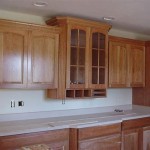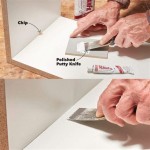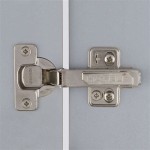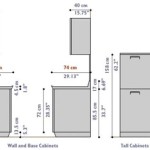What Is The Best Vinyl Flooring for Kitchens?
Kitchen flooring takes a beating. From dropped dishes and spilled liquids to heavy foot traffic, it needs to withstand the rigors of daily life. Vinyl flooring has become a popular choice due to its durability, affordability, and wide range of styles. However, not all vinyl flooring is created equal. This article explores the different types of vinyl flooring available, highlighting their pros and cons to help determine the best option for kitchen applications.
Types of Vinyl Flooring
Vinyl flooring comes in several forms, each with its own set of characteristics. Understanding these differences is crucial for making an informed decision.
* Sheet Vinyl: Sheet vinyl is a single, continuous piece of vinyl, typically available in 6- or 12-foot widths. It offers excellent water resistance, making it a good choice for kitchens prone to spills. * Vinyl Tile: Vinyl tile comes in individual squares or rectangles and can mimic the look of ceramic or stone tile. It's relatively easy to install and repair, as individual tiles can be replaced if damaged. * Luxury Vinyl Plank (LVP) and Luxury Vinyl Tile (LVT): LVP and LVT are thicker and more durable than traditional vinyl tile, offering enhanced realism and a more comfortable underfoot feel. They often feature realistic textures and embossing, mimicking hardwood or stone. * Wood Plastic Composite (WPC) Vinyl: WPC vinyl is a newer type of vinyl flooring that features a waterproof core made of wood plastic composite. It offers excellent stability and water resistance, making it ideal for kitchens and bathrooms. * Stone Plastic Composite (SPC) Vinyl: Similar to WPC, SPC vinyl utilizes a stone plastic composite core, making it even more durable and dent-resistant. It's a good choice for high-traffic kitchens.
Key Considerations for Kitchen Flooring
When choosing vinyl flooring for a kitchen, several factors should be considered to ensure the best performance and longevity.
* Water Resistance: Kitchens are prone to spills and moisture. Opt for a fully waterproof vinyl option like sheet vinyl, WPC, or SPC to prevent water damage. * Durability: Kitchen floors experience heavy traffic and potential impacts from dropped objects. Choose a vinyl flooring with a thick wear layer for increased durability and scratch resistance. * Comfort: Standing for extended periods in the kitchen can be tiring. Consider LVP or LVT with a thicker core or underlayment for added comfort. * Maintenance: Ease of cleaning is a priority in a kitchen. Vinyl flooring is generally easy to maintain with regular sweeping and mopping.
Comparing Vinyl Flooring Options for Kitchens
Each type of vinyl flooring offers unique advantages and disadvantages in a kitchen setting.
* Sheet Vinyl: Offers excellent water resistance, affordability, and ease of cleaning. However, it can be susceptible to tears and punctures, and design options might be limited. * Vinyl Tile: Provides good value and ease of repair. However, it may not be as water-resistant as sheet vinyl or LVP/LVT. * LVP/LVT: Offers a realistic look, enhanced durability, and increased comfort. However, cost can be higher than other vinyl options. * WPC Vinyl: Provides superior water resistance, stability, and comfort. However, it can be more expensive than traditional vinyl options. * SPC Vinyl: Offers the highest level of durability and dent resistance among vinyl options. It can also be more expensive.
Understanding Wear Layer Thickness
The wear layer is the topmost layer of vinyl flooring that protects against scratches, scuffs, and wear. A thicker wear layer indicates greater durability.
* Residential Wear Layers: Typically range from 6 mil to 20 mil. For kitchens, a wear layer of at least 12 mil is recommended. * Commercial Wear Layers: Range from 20 mil to 30 mil and are suitable for high-traffic commercial kitchens.
Installation Considerations
Proper installation is crucial for the performance and longevity of vinyl flooring.
* Subfloor Preparation: A smooth, level subfloor is essential for a successful installation. * Acclimation: Vinyl flooring should be acclimated to the room's temperature and humidity for 24-48 hours before installation. * Adhesive vs. Click-Lock: Some vinyl flooring requires adhesive, while others utilize a click-lock system for easier installation.
Budget and Style
Vinyl flooring offers a wide range of styles and price points.
* Budget-Friendly Options: Sheet vinyl and vinyl tile are generally the most affordable options. * Premium Options: LVP, LVT, WPC, and SPC vinyl offer a more upscale look and feel, but come at a higher price. * Style Options: Vinyl flooring can mimic the look of hardwood, stone, ceramic tile, and concrete, offering versatile design options.
Cleaning and Maintenance
Maintaining vinyl flooring in a kitchen is relatively easy.
* Regular Sweeping/Vacuuming: Remove dirt and debris regularly to prevent scratching. * Mopping: Use a damp mop with a pH-neutral cleaner. Avoid harsh chemicals or abrasive cleaners. * Spill Cleanup: Wipe up spills promptly to prevent staining or water damage.
What Is The Best Flooring For A Kitchen Tarkett

Which Vinyl Flooring Is Best For Kitchen

Best Kitchen Flooring Options 2024 Guide Forbes Home

The Best Vinyl Sheet Flooring

Is Vinyl Flooring The Best Choice For Kitchens

The Best Flooring For A Busy Kitchen Mega

The 8 Best Luxury Vinyl Flooring For Your Kitchen L Antic Colonial

The Best Vinyl Plank Flooring For Your Home In 2024

The Best Waterproof Flooring Options Inc

What S The Best Vinyl Flooring For Your Home L Antic Colonial
Related Posts








